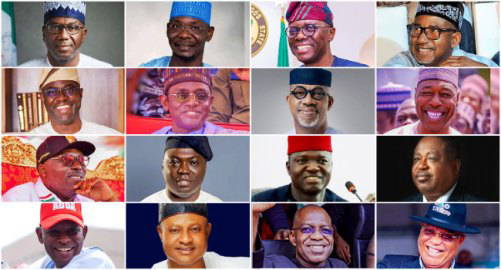The Socio-Economic Rights and Accountability Project (SERAP) has issued Freedom of Information (FoI) requests to all 36 state governors in Nigeria, demanding that they publicly account for how they have spent security votes allocated to their states since May 29, 2023. SERAP is also calling on governors to invite Nigeria’s two leading anti-corruption agencies—the Economic and Financial Crimes Commission (EFCC) and the Independent Corrupt Practices and Other Related Offences Commission (ICPC)—to jointly investigate and monitor the use of these funds.
In a statement released on June 28, 2025, and signed by SERAP’s Deputy Director Kolawole Oluwadare, the organization stressed that the rising insecurity across many Nigerian states has created a strong public interest in understanding how security vote funds are used. The organization cited events like the recent massacre in Benue State and persistent violence in other regions as reasons why transparency is urgently needed.
SERAP criticized the opaque nature of security vote expenditures, stating that these funds—often amounting to billions of naira annually—are not being used effectively to improve the security situation. The organization referenced Section 14(2)(b) of the Nigerian Constitution, which declares that “the security and welfare of the people shall be the primary purpose of government,” as well as Section 15(5), which requires government actors to eliminate corruption and abuse of office.
According to SERAP, in 2021 alone, state governors and local government chairpersons reportedly received over ₦375 billion under the guise of security votes. However, despite these allocations, many states continue to suffer from high levels of violence, banditry, and social instability. The group warned that continued secrecy surrounding the use of public funds only serves to undermine public trust and further erode accountability in governance.
The organization emphasized that while matters of national security can sometimes require operational confidentiality, there is no constitutional or legal justification for withholding basic financial information from the public. SERAP argued that the Nigerian Constitution imposes a duty on governors to explain how public resources are being used, especially when those funds are claimed to be used for public safety.
The FoI requests urge governors to comply within seven days of receiving the letter or its publication. SERAP stated that failure to respond would result in legal action aimed at compelling state governments to comply with the information request in the public interest.
SERAP also cited a landmark Supreme Court judgment affirming that the Freedom of Information Act applies across Nigeria, including to all state governments. The court ruled that state governors cannot claim exemption from the Act, thereby eliminating one of the major defenses previously used to avoid financial disclosures.
The organization said that transparency in how security votes are used would promote public dialogue about state security challenges and government responses. SERAP described the current lack of oversight as enabling large-scale mismanagement of public resources and weakening citizens’ ability to hold public officials accountable.
It added that many governors appear to treat security votes as personal entitlements rather than public funds designated for improving safety and welfare. This, SERAP contended, is in direct conflict with constitutional obligations and international standards on governance and anti-corruption.
The statement warned that the misuse of security votes undermines Nigeria’s fight against poverty and insecurity. SERAP highlighted a recent World Bank classification of Nigeria as an “economy in fragile and conflict-affected situations (FCS).” The World Bank identified insecurity as one of the main factors contributing to Nigeria’s extreme poverty, poor health and education services, and deteriorating human development indicators.
Alongside Nigeria, the FCS list includes other conflict-ridden countries like Afghanistan, Sudan, and Libya. SERAP argued that unless Nigerian governors act transparently and use public funds effectively, the nation’s development will remain stunted.
In its closing remarks, SERAP reiterated that the misuse and secrecy surrounding security votes represent a violation of the Nigerian Constitution and international human rights laws. The group urged governors to abandon what it called a “pervasive tendency” to treat these funds as private resources, and instead focus on delivering tangible security improvements for the Nigerian people.





